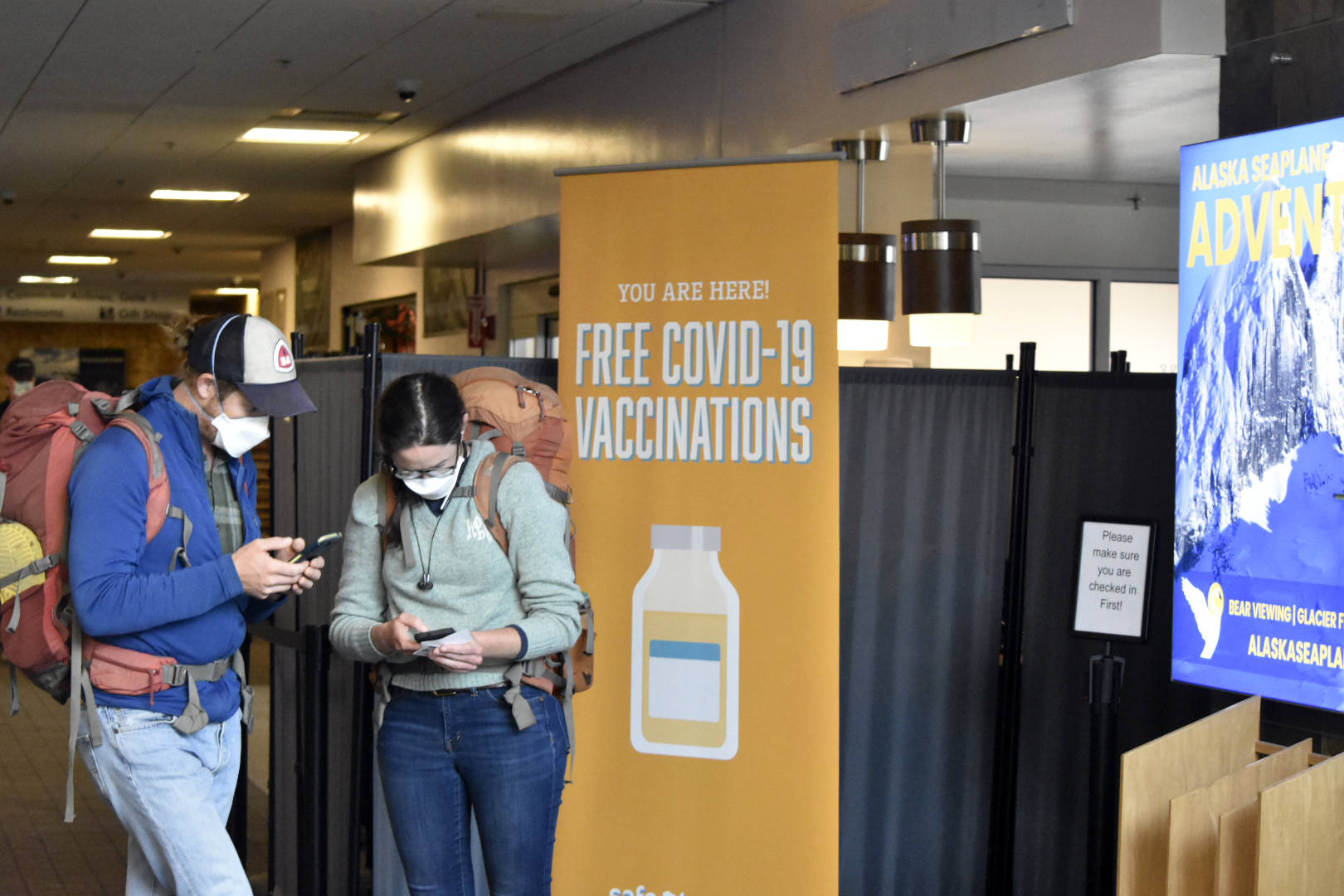City and state officials in Alaska are preparing for another round of vaccine distributions after federal health officials Wednesday recommended booster shots for certain COVID-19 vaccines, but concrete plans have yet to be formed.
“We are planning, we are ramping up, we are working with our traditional partners,” said Dr. Anne Zink, the state’s chief medical officer. “There are many hands and many hands are getting ready.”
The federal Centers for Disease Control and Prevention made the announcement amid a spike in COVID-19 cases driven by the delta variant, but booster shots will first need approval from a CDC panel and the Food and Drug Administration, according to the Associated Press. Officials are only recommending the boosters for recipients of the Moderna or Pfizer vaccines, while data is still being collected on the single-injection Johnson & Johnson vaccine, AP reported.
Health officials are recommending the shots as the vaccine’s effectiveness seems to wain over time, said Dr. Lisa Rabinowitz, a physician with the Alaska Department of Health and Social Services. The CDC is recommending booster shots be given eight months after the initial dose, Rabinowitz said, and provided a tentative date of Sept. 20 for authorization.
“The details surrounding that have not been released,” Rabinowitz said. “We want to have all our infrastructure in place.”
Vaccine distribution would be similar to the initial rollout in the spring, said DHSS epidemiologist Matt Bobo, meaning frontline workers and older adults would be the first to receive boosters. The state partnered with regional organizations and both municipal and tribal governments for the previous vaccine rollout and those partnerships will likely to occur again, Zink said.
City and Borough of Juneau officials will be having planning meetings on vaccine boosters next weeks, said Deputy City Manager Robert Barr in an email.
“Our understanding is that FDA authorization is set to occur sometime on or before Sept. 20, and that people will be eligible for boosters eight months after their second dose for the mRNA (Pfizer and Moderna) vaccines. I haven’t seen anything formal on this yet so all subject to change, but that’s the info we’re currently operating under,” Barr said.
The delta variant of the virus is driving a surge in cases worldwide, Zink said, and communities across the state were experiencing similar problems. According to Zink, hospitals nationwide are experiencing staffing and supply shortages ‘from custodians to physicians.”
Health officials emphasized the vaccine was the most effective way to combat the virus, and Zink said hospitals in areas with low vaccination rates were being hardest hit. Though the vaccine’s effectiveness at preventing contraction of the virus seemed to wane over time, state epidemiologist Dr. Joe McLaughlin said data showed its ability to prevent severe infection and hospitalization remained high.
McLaughlin pointed to an Aug. 18, report from the CDC that showed the vaccines’ estimated effectiveness at preventing new cases in New York declined from about 91% in early May to 79% in mid-July. But the report also showed the estimated effectiveness for preventing hospitalizations remained above 90% for the same time period.
COVID-19 cases in Alaska continue to rise, according to Zink, who said the state had seen a 43% increase since last week,
In a statement Wednesday, the city said increased COVID-19 mitigation measures would go into force beginning 5 p.m. Friday, as the city raises its community risk level. Mitigation measures include limiting bar, restaurant and gym capacity to 50% and an 11 p.m. closing time.
The city already reinstated its mask mandate for public buildings in late July but at the same time dropped the $25 fine for violating mitigation rules.
While Juneau’s Bartlett Regional Hospital in Juneau is not at capacity, hospitals in Anchorage and Seattle which the city depends on for extra care, are stressing their resources, AP reported. In addition to a rise in COVID-19 cases, hospitals nationwide are experiencing staffing shortages and supply chain issues.
Many countries still waiting for the first dose
The decision by the United States and other developed nations to administer booster shots to their residents drew criticism from international health officials, who noted that many poor countries were still awaiting their first dose.
“As some richer countries hoard vaccines, they make a mockery of vaccine equity,” said Matshidiso Moeti, Africa director for the World Health Organization, according to AP. Moeti pointed out that rich countries have on average administered more than 103 vaccine doses per 100 people, while in Africa it’s just six.
Moeti said the decisions to roll out COVID-19 booster shots while so many people across Africa remain unvaccinated “threaten the promise of a brighter tomorrow” for the continent, AP reported.
According to AP, earlier this week the WHO director-general, Tedros Adhanom Ghebreyesus, called it “unconscionable” that some countries are now offering booster shots “while so many people remain unprotected.”
• Contact reporter Peter Segall at psegall@juneauempire.com. Follow him on Twitter at @SegallJnuEmpire. The Associated Press contributed reporting to this article.

